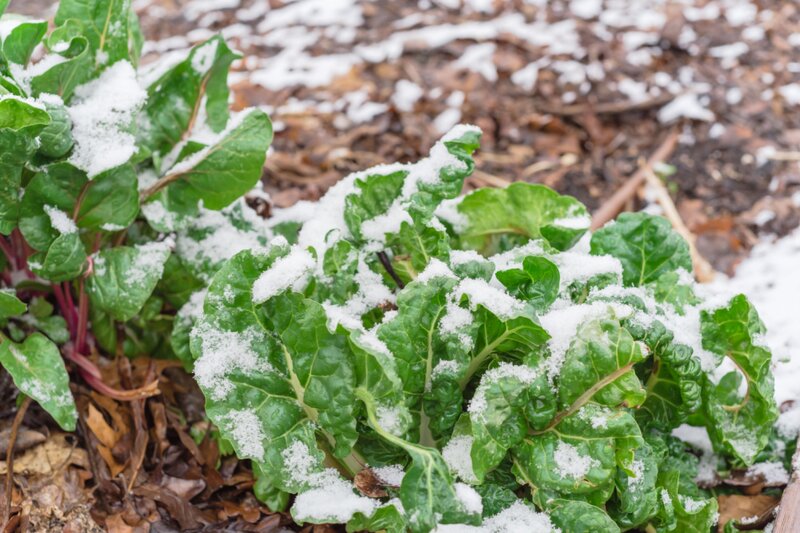You might think there’s not much to do in the veg garden in winter, but there are still seeds to sow for early harvests next year, as well as crops to harvest now for hearty winter meals. Here’s what to do in the vegetable garden in December.

Vegetables and herbs to sow in December
-
Sow basil in pots on a sunny windowsill or in a greenhouse to give you a supply of leaves through winter. You can also sow dill and chives indoors now.
-
Sow microgreens for fresh salad leaves. Microgreens are fast-growing herbs and vegetables that are harvested as seedlings, and because they’re so small, they can be grown on a windowsill all year round. Radish, coriander, rocket and spinach all make great microgreens – sow them in seed trays and harvest a few days after germination for leaves packed with flavour, delicious added to salads and sandwiches.
-
Boxing Day is the traditional day for sowing onions, giving them an early start for a long growing season, and ‘Ailsa Craig’ is one of the best onions to choose for winter sowing. Sow the seeds in modules or pots in a cool greenhouse and plant them out in spring.
-
Winter’s also a good time to plant garlic cloves, provided the soil is well-drained – they don’t like sitting in cold, wet soil over winter. If your soil is heavy clay, start your garlic cloves off in trays and plant them out in spring.
-
Sow broad beans now for an early harvest next year. In mild areas, you can sow hardy broad beans like ‘Aquadulce Claudia’ outdoors under cover; otherwise, start them off in modules in a greenhouse.
-
Winter is the ideal time to plant rhubarb crowns in soil that’s had plenty of garden compost or well-rotted manure dug in.
What to harvest in December
Harvesting your own home-grown winter vegetables is very satisfying. Brussels sprouts, kale and leeks can all be harvested in winter. Parsnips are another excellent winter vegetable – they taste better after a touch of frost. Protect leafy vegetables like sprouts and kale by covering them with netting to stop pigeons from stripping the leaves. If you’re growing Brussels sprouts for Christmas dinner, stake the plants to protect them from strong winter winds.
Preparing for next year’s veg garden
One of the best things you can do to prepare for next year’s crops is to mulch any empty beds, covering the soil with a thick layer (at least 5cm/2in) of organic material such as well-rotted farmyard manure or garden compost. This will improve your soil structure and nutrient levels, giving you more vital, healthier crops. Finally, settle down in your favourite chair with a cup of tea and your garden notebook and plan what to sow and plant next year!
We have a fantastic range of vegetable seeds and seedlings in our garden centre, so visit us today to get next year’s vegetable garden off to a great start!
